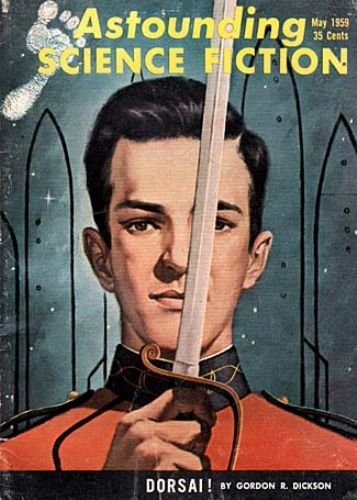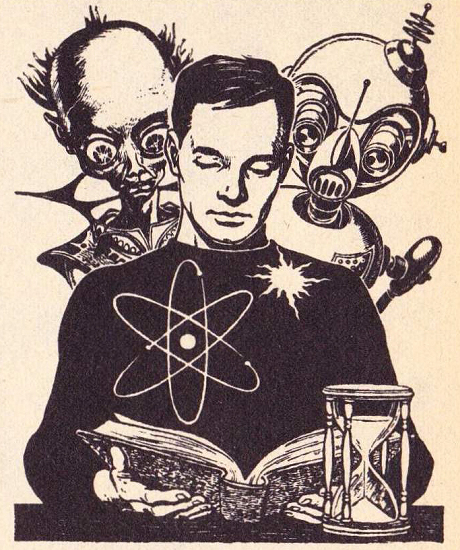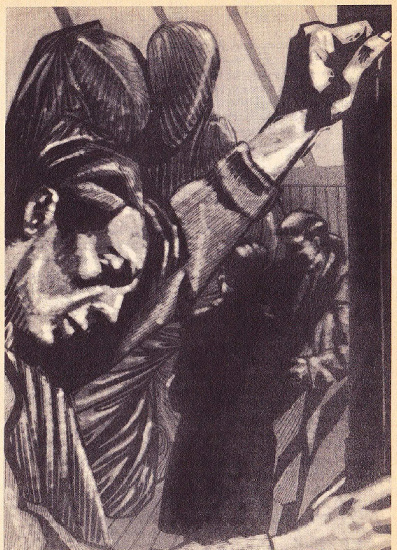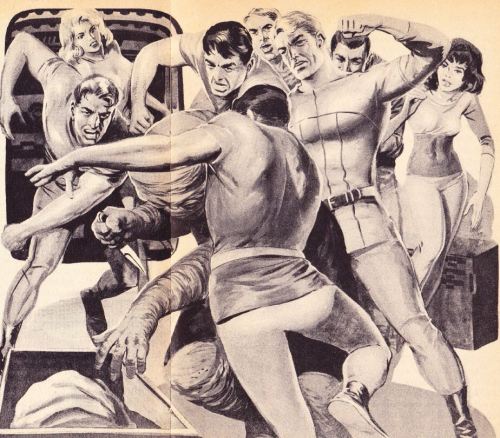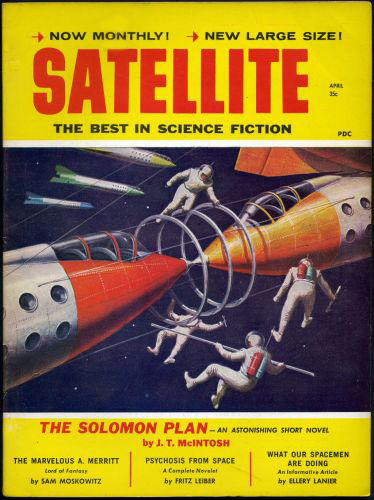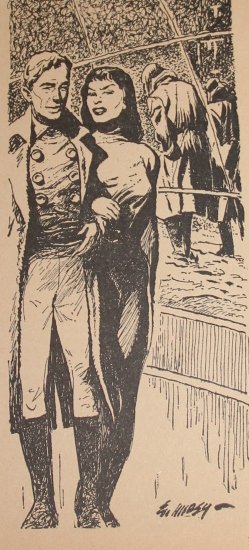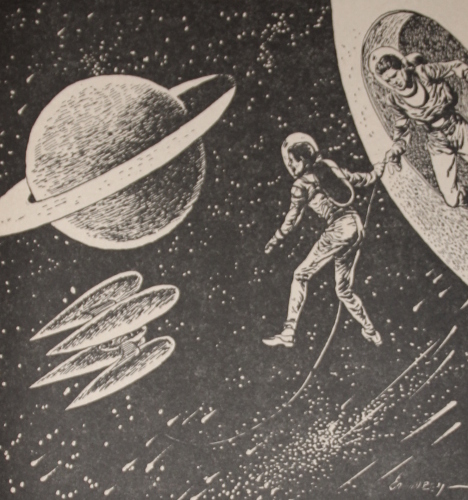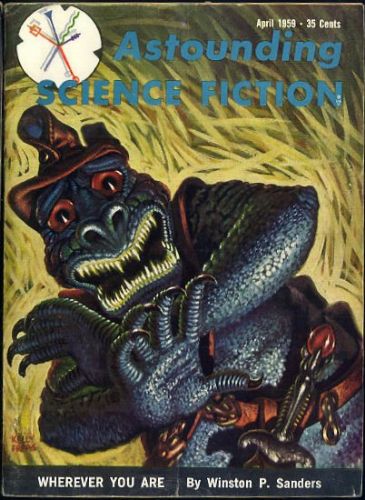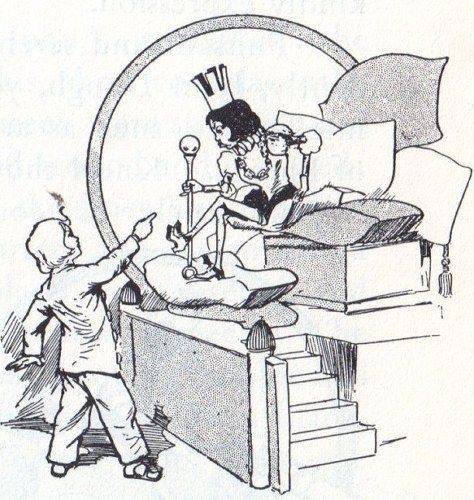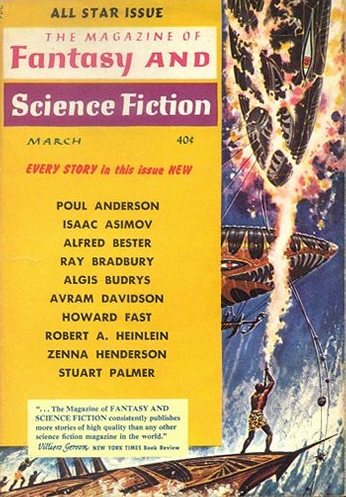Sorry about the wait, friends, but I promise to make it up to you. I had a lovely night at the drive-in that precluded my fingers hitting the typewriter keys, but I'll have movies to discuss in short order as a result.
In the meantime, let's wrap up this month's Astounding. shall we? After all, new issues come out in just a couple of days, and I have to have the boards clear before pressing on.
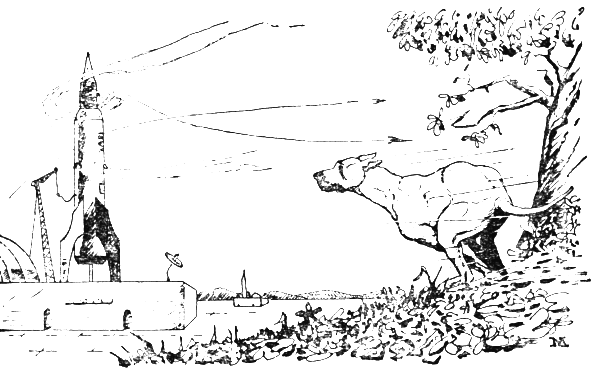
(illustrated by Martinez)
George O. Smith, science fiction's A-lister of latin descent, turns out a fine story for animal lovers with History Repeats. In the far future, canis familiar has been given enhanced intelligence to rival that of humanity's, but their loyalty to their bipedal companions remains undiminished. In this tale, Terran agent, Peter, and his furry companion, Buregarde, are sent to Xanabar, a sort of latter-day Byzantium, to rescue a kidnapped damsel in distress. It's worth reading just for Buregarde–Smith always writes a fun, poetic story.
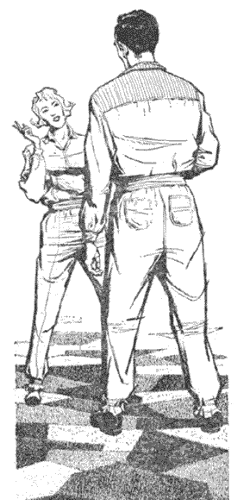
(illustrated by van Dongen)
Operation Haystack, by Frank Herbert, is an interesting political thriller set about a thousand years from now. It involves a centuries-old plot by the descendants of nomadic Arabs to seize political control of the galaxy. What makes the story special is that the orchestrators of the plot are women–and they pretty much win in the end. That said, it's a little disappointing that these powerful women generally rule through their husbands, who hold the political offices (though the women pull the strings). I'd like to think that the future lies in the equality of the sexes rather than the eternal struggle, with one side or the other side enjoying supremacy for a while. Still, I suppose Herbert's is as plausible a future as any, and at least the women are getting their say in it.

(NASA photo)
Philip Latham's Disturbing Sun is written in the form of an interview, the kind of transcription you often find in NASA press releases. It's one of those non-non-fiction pieces, and it is not un-clever. Psychologist Dr. Niemand describes the untoward effects increased sunspot activity has on the psyches of people during the sunlit hours. Given that we still don't know what sunspots really are (well, we know they are cool spots, but we don't know why they exist or how they're made), I suppose Latham's fancies are to disprove. Interestingly, Latham (who appears in the story as the interviewer) is actually the alter-ego of real-life astronomer Robert Richardson; Richardson was even the technical advisor on Destination: Moon, so I imagine he knows whereof he speaks. Even if you don't buy the sunspot/neurosis connection (I doubt Richardson does either), the style is captured with verisimilitude and is a fun read.

(illustrated by Summers)
Last up is Hex by Larry M. Harris. This is a story I would have expected to find in Fantasy & Science Fiction (that's a compliment) dealing as it does with witchcraft, a do-gooder welfare worker with fine intentions but creepy, eldritch methods, a scheming Russian ex-patriate who wants to bilk the system rather than be magically compelled to find work, and a gypsy witch in over her head. Interesting, whimsical, disturbing. Good stuff.
Gosh, where does that leave us? I guess this really wasn't a bad book, all told. 3.5 stars? Worth getting, particularly if you want to catch Dorsai in serial form.
Next up: The last issue of Satellite! Stay tuned!
(Confused? Click here for an explanation as to what's really going on)
This entry was originally posted at Dreamwidth, where it has comments. Please comment here or there.

